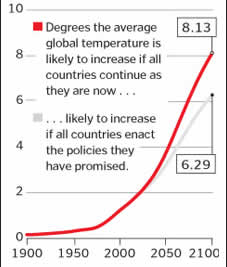So, according to Game Change, by John Heilemann and Mark Halperin, Senator Harry Reid said (quote via):
that Obama’s political advantages included his light skin tone and his ability to speak “with no Negro dialect, unless he wanted to have one.”
Based on this quote, he stands accused of racism by numerous critics, including Jonah Goldberg in a recent NRO column. But more on that below. First, it’s worth looking at Reid’s assertion and seeing if, and in what way, it exhibits racism.
Before we can credibly do that, however, we should agree on a definition of “racism.” Merriam-Webster provides the following definition of the word:
1: a belief that race is the primary determinant of human traits and capacities and that racial differences produce an inherent superiority of a particular race
2: racial prejudice or discrimination
So, was Harry Reid asserting that black people are less capable than white people, and that, therefore, Barack Obama, whose light skin and way of speaking identified him as less “black” and more “white,” would make a better president than the average black person?
I sense a much simpler and more likely explanation: Reid was correctly diagnosing the predilections of the voters in the United States. Although conservatives wish it were not so, the United States has a history of actual racism, and racism continues, even at this moment, to be problematic for our country. It seems likely that it is factually true that Barack Obama’s light skin and avoidance of speaking in what is perceived as a black manner would be helpful assets in a political campaign.
As for the term “negro,” it’s worth recalling that Harry Reid was born in 1939, and, during the time he grew up, that term was not the slur it is today.
I don’t mean so much to mount a defense of Harry Reid as to point out that racism is about the content and intent of someone’s words and ideas, and not about some list of embargoed words. So, on to Mr. Goldberg’s recent column. Mr. Goldberg asserts (I think?) that Reid’s remarks were racist:
That he’s been caught talking like one of those racists is a delicious irony.
and:
A Republican says something stupidly offensive or offensively stupid about race and he must be destroyed, even if he apologizes …. But when a Democrat blunders the same way, the liberal establishment goes into overdrive explaining why it’s no big deal.
What stands out here is that Mr. Goldberg at no point makes a claim regarding what about Reid’s remark, specifically, is racist. The idea seems to be that the language Reid used is similar to language used by racists, and so it is racist. But, sad to say, this is not convincing. As I showed above, there is reason to doubt the racist interpretation of Reid’s remark.
He goes further, though, and says that this moment should serve to highlight the double standard whereby Republicans get tarred and feathered for saying racist stuff but Democrats don’t. If we understand the word “racist” to mean “talking about racial issues using the wrong words,” then I suppose this makes sense, but there is a quite interesting claim Mr. Goldberg makes when he writes:
Yes, there’s a double standard, but the point is that the standard used against conservatives is unfair, not that that unfair standard should be used against Democrats as well.
Whatever [RNC Chair Michael] Steele’s other strengths and weaknesses may be, a major benefit of having a black leader for the GOP was, for me, that Republicans could have a more credible voice in attacking the unfairness of such race-driven scalp hunts.
I wish I had a mite less intellectual honesty, because then I could hysterically accuse Mr. Goldberg of racism for claiming that Mr. Steele’s race endows him with superior capacities etc. It seems clear, however, that Mr. Goldberg is merely identifying the facts of the case: it is easier for a black person to tell everyone to stop getting mad at Republicans for using the wrong words. This is because black people are immune to the charge of racism.
Or something. In opposition to Mr. Goldberg’s view of things, I would offer the following: the Republican party is the more racism-friendly of the two major parties, and this is why its members take it on the chin when they say something that seems racist. Defending that contention will have to be the work of another post, though. For now, simply consider how it compares to Mr. Goldberg’s explanation of today’s racial politics:
The bittersweet irony is that racism is such a nonissue in U.S. politics today.
If the argument is that race is no longer a factor in politics, that the races are all equal and all the protestors should go home, then the response should be laughter and disdain. To pick a few from a sea of examples: there exists a large income disparity between black and white people; african americans receive worse medical care; black people have shorter life expectancy (PDF) than white people.
Now, perhaps Mr. Goldberg wants to claim that these disparities simply reflect a natural difference between the races, and shows that one of them is superior to the other. But one hopes not. That would be textbook racism.


